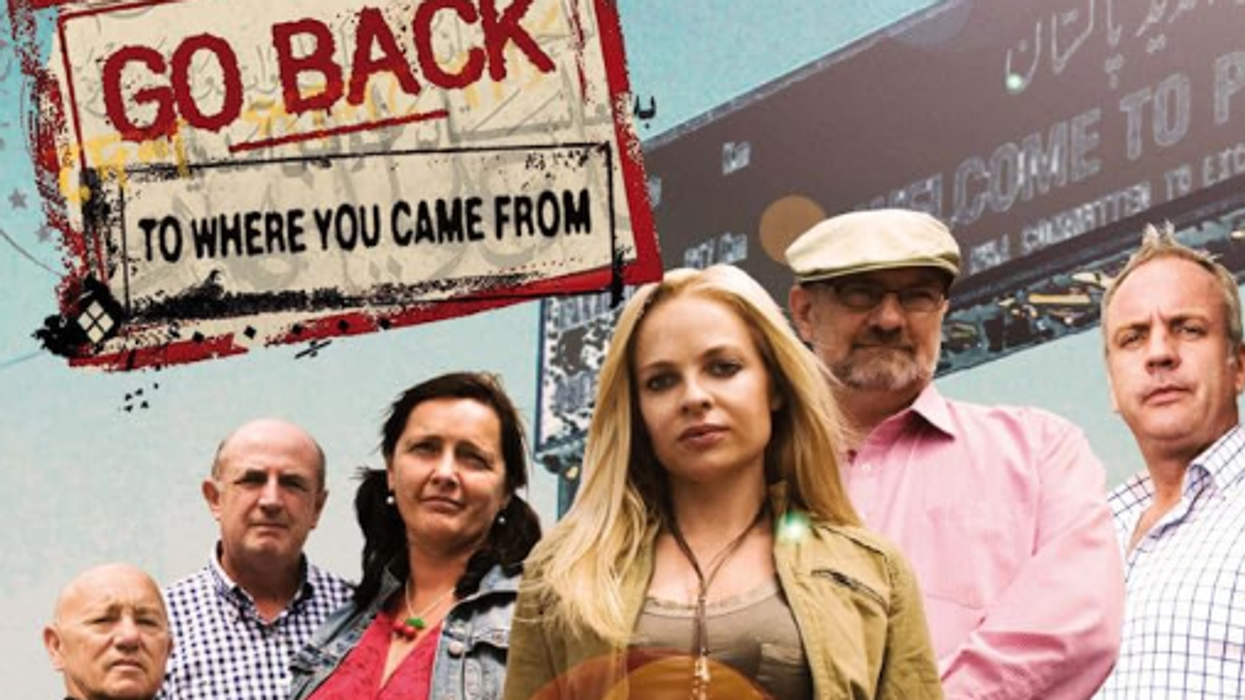BRITAIN’S newest reality TV show has been slammed as “insensitive”, “voyeuristic” and even “nauseating” for recreating with six Britons the often fatal journeys made by thousands of refugees to the UK.
Titled Go Back to Where You Came From, the part-documentary, part-reality TV show by Channel 4 follows the group of six, who hold strong views both for and against immigration.
They are divided into two teams, with one dropped into one war-ravaged Raqqa in Syria and the other sent to Mogadishu in Somalia.
Over four episodes which launched last Monday (3), they “experience some of the most perilous parts of the refugee journeys” according to Channel 4 – although they travel largely in armoured vehicles.
The outspoken views of some participants, as well as the show’s format, have been criticised by viewers, charities and some media.
Amnesty International UK called it “deeply disappointing” and “sensational”.
Participant and chef Dave Marshall, 35, opens the series standing on the cliffs of Dover, calling for immigrants crossing the Channel to be “blown up”.
Moments later, political commentator Chloe Dobbs, 24, says that unless immigration is reined in, “Britain will be a hellhole full of people wearing burqas”.
In the first episode, the six are taken to markets where they meet families, play football with kids and accompany them as they search through litter for scraps.
At one point, when they visit a bombed-out family home in Raqqa, Marshall and two others are invited to stay the night.
“Very kind of you for offering your house to us,” replied Marshall, the irony perhaps lost on him. “The series explores the varied and sometimes polarised opinions in our society in a fresh way,” a series spokesperson said.
In upcoming episodes, both groups undertake “challenges”, including a boat crossing and trekking through a Libyan desert. There is no winner of the series, though. Dobbs defended it as a “really fun show that lots of people will tune into”. “More so than just some bog-standard, boring documentary,” she said.
Go Back to Where You Came From is based on a popular Australian series which first ran in the early 2010s.
At around that time, politicians in Australia were campaigning to “stop the boats” of irregular migrants reaching the country. A decade later, the same catchphrase has been seized upon by politicians opposing asylum seekers crossing the Channel to reach Britain.
Some viewers praised Channel 4 for giving a rare primetime spot to the hot-button immigration debate, with British charity Refugee Council “welcoming” the show’s premise.
“Television shows have huge potential to highlight the human stories behind the headlines,” Refugee Council CEO Enver Solomon said.
In one heavily criticised “challenge”, the group get into a dinghy in a simulation of the often fatal Channel crossings.
For Dobbs, who has previously said small boats were made out to be “fun” by some refugees, getting into a flimsy vessel in the middle of the night was a turning point. “It was that moment for me that it really hit me. Gosh, people must be really desperate to get on these boats,” she acknowledged.
However, clips of the simulation sparked outrage across the Channel, with French politician Xavier Bertrand calling for the “nauseating” show to be cancelled. “Hundreds of people have died in the Channel in recent years. This situation is a humanitarian tragedy, not the subject of a game,” Bertrand said on X.
The number of asylum seekers arriving in Britain on small boats after crossing the Channel rose to more than 36,800 in 2024, according to official data.
It was also the deadliest year for migrant crossings, with at least 76 deaths recorded.
According to Dobbs, the show wanted to do something “different”. “Rather than just talking to a migrant about what the boat crossing they did was like, wouldn’t it be even better to simulate it and feel all those emotions for yourself?” (AFP)




